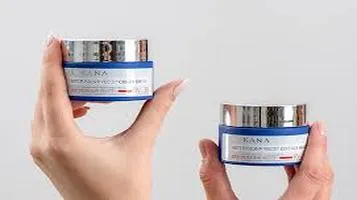Review of Retinol: The Gold Standard in Skincare
Retinol, a derivative of vitamin A, is a popular ingredient in skincare renowned for its transformative effects on the skin. As a potent antioxidant, retinol promotes cell turnover, stimulating the production of new skin cells and collagen. This activity helps reduce the appearance of fine lines, wrinkles, and hyperpigmentation, resulting in a smoother, more even complexion. Additionally, retinol can help manage acne by preventing clogged pores and reducing inflammation. Available in various formulations, retinol products range from over-the-counter creams to prescription-strength treatments, allowing for tailored skincare solutions. When incorporating retinol into a routine, it's important to start with lower concentrations to build tolerance and always use sunscreen, as retinol can increase skin sensitivity to sunlight.

Retinol, a derivative of Vitamin A, has earned its reputation as a gold standard in the skincare industry. Its popularity is not without reason; dermatologists and skincare enthusiasts alike laud its ability to address a myriad of skin concerns, from acne and hyperpigmentation to fine lines and wrinkles. In an era where countless skincare products flood the market, Retinol stands out as a tried-and-true, scientifically backed ingredient. This review delves into its efficacy, usage, benefits, and potential drawbacks.
Efficacy and Mechanism of Action
Retinol works by accelerating cell turnover and promoting the production of new skin cells. It penetrates deep into the skin, where it converts into retinoic acid. This process stimulates collagen production, which is crucial for maintaining skin elasticity and firmness. Collagen is a protein that diminishes with age, leading to sagging and the formation of wrinkles. By boosting collagen levels, Retinol helps to mitigate these signs of aging.
Moreover, Retinol unclogs pores, which can prevent and reduce the severity of acne. Its exfoliating properties help in removing dead skin cells, thereby preventing them from mixing with sebum and clogging pores. This makes it a potent ingredient for those struggling with acne and its aftermath, such as scarring and hyperpigmentation.
Benefits
1. Anti-Aging: Retinol is perhaps most celebrated for its anti-aging benefits. Regular use can lead to a noticeable reduction in fine lines and wrinkles. It also helps to improve skin texture, making it smoother and more youthful.
2. Acne Treatment: For those battling acne, Retinol can be a game changer. Its ability to clear pores and reduce inflammation makes it effective in treating both existing acne and preventing future breakouts.
3. Hyperpigmentation and Even Skin Tone: Retinol can help fade dark spots and hyperpigmentation. By promoting cell turnover, it aids in shedding pigmented cells and replacing them with new, more evenly pigmented cells. This results in a more uniform skin tone over time.
4. Improved Skin Texture: The exfoliating properties of Retinol lead to smoother, more refined skin texture. It can help reduce the appearance of pores and make the skin feel softer.
5. Versatility: Retinol is suitable for a wide range of skin types and concerns. Whether you’re dealing with aging skin, acne, or uneven skin tone, incorporating Retinol into your skincare routine can provide significant improvements.
Usage and Application
While Retinol offers a plethora of benefits, it’s essential to use it correctly to avoid potential side effects. Beginners should start with a lower concentration, typically around 0.25% to 0.5%, and gradually increase as their skin builds tolerance. Applying Retinol every other night initially can help to minimize irritation.
It’s crucial to apply Retinol on clean, dry skin. A pea-sized amount is usually sufficient for the entire face. Follow it up with a moisturizer to mitigate potential dryness and irritation. Also, Retinol makes the skin more sensitive to UV rays, so using a broad-spectrum sunscreen during the day is non-negotiable.
Potential Drawbacks
Despite its myriad benefits, Retinol is not without its drawbacks. Some users may experience dryness, redness, and peeling, especially during the initial stages of use. This is often referred to as the “retinization” period, where the skin adjusts to the new ingredient. It's crucial to be patient and consistent; these side effects usually subside as the skin acclimates.
Another consideration is that Retinol can be irritating for sensitive skin. Those with conditions like eczema or rosacea should consult with a dermatologist before incorporating Retinol into their routine. Additionally, pregnant or breastfeeding women are generally advised to avoid Retinol due to potential risks to the baby.
Alternatives and Adjuncts
For those who find Retinol too harsh, alternatives like Bakuchiol, a plant-based ingredient, offer similar benefits with less irritation. Additionally, incorporating hydrating and soothing ingredients like hyaluronic acid, niacinamide, and ceramides can help to counteract the drying effects of Retinol.
Conclusion
Retinol remains a cornerstone in modern skincare for good reason. Its multifaceted benefits, from anti-aging and acne treatment to improving skin texture and tone, make it a highly effective ingredient worth considering. However, its potency necessitates careful and informed use to maximize benefits while minimizing potential side effects.
For anyone serious about achieving and maintaining healthy, radiant skin, Retinol is a worthy addition to their skincare arsenal. With proper usage and patience, the transformative effects of Retinol can be both remarkable and enduring. Whether you’re a skincare novice or a seasoned enthusiast, Retinol offers a scientifically backed solution to many common skin concerns, solidifying its status as a gold standard in skincare.






